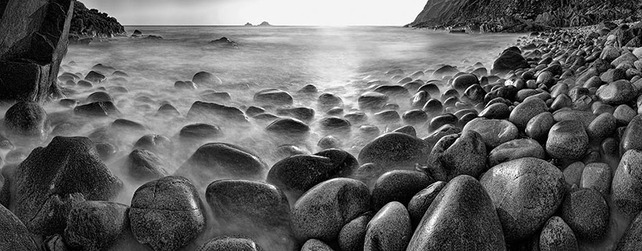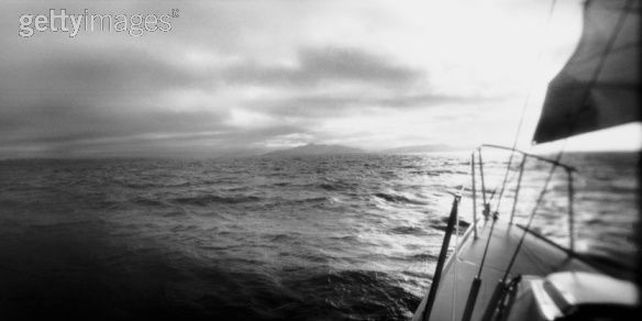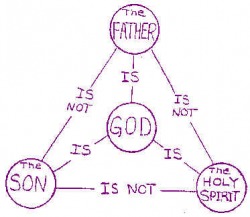Everyone has warned me not to tell you what I am going to tell you in this last book. They all say ‘the ordinary reader does not want Theology; give him plain practical religion’. I have rejected their advice. I do not think the ordinary reader is such a fool. Theology means ‘the science of God,’ and I think any man who wants to think about God at all would like to have the clearest and most accurate ideas about Him which are available. You are not children: why should you be treated like children?
In a way I quite understand why some people are put off by Theology. I remember once when I had been giving a talk to the R.A.F., an old, hard-bitten officer got up and said, ‘I’ve no use for all that stuff. But, mind you, I’m a religious man too. I know there’s a God. I’ve felt Him out alone in the desert at night: the tremendous mystery. And that’s just why I don’t believe all your neat little dogmas and formulas about Him. To anyone who’s met the real thing they all seem so petty and pedantic and unreal!’
Now in a sense I quite agreed with that man. I think he had probably had a real experience of God in the desert. And when he turned from that experience to the Christian creeds, I think he really was turning from something real to something less real. In the same way, if a man has once looked at the Atlantic from the beach, and then goes and looks at a map of the Atlantic, he also will be turning from something real to something less real: turning from real waves to a bit of coloured paper. But here comes the point. The map is admittedly only coloured paper, but there are two things you have to remember about it. In the first place, it is based on what hundreds and thousands of people have found out by sailing the real Atlantic. In that way it has behind it masses of experience just as real as the one you could have from the beach; only, while yours would be a single glimpse, the map fits all those different experiences together. In the second place, if you want to go anywhere, the map is absolutely necessary. As long as you are content with walks on the beach, your own glimpses are far more fun than looking at a map. But the map is going to be more use than walks on the beach if you want to get to America.
Now, Theology is like the map. Merely learning and thinking about the Christian doctrines, if you stop there, is less real and less exciting than the sort of thing my friend got in the desert. Doctrines are not God: they are only a kind of map. But that map is based on the experience of hundreds of people who really were in touch with God-experiences compared with which any thrills or pious feelings you and I are likely to get on our own are very elementary and very confused. And secondly, if you want to get any further, you must use the map. You see, what happened to that man in the desert may have been real, and was certainly exciting, but nothing comes of it. It leads nowhere. There is nothing to do about it. In fact, that is just why a vague religion-all about feeling God in nature, and so on-is so attractive. It is all thrills and no work; like watching the waves from the beach. But you will not get to Newfoundland by studying the Atlantic that way, and you will not get eternal life by simply feeling the presence of God in flowers or music. Neither will you get anywhere by looking at maps without going to sea. Nor will you be very safe if you go to sea without a map.
In other words, Theology is practical: especially now. In the old days, when there was less education and discussion, perhaps it was possible to get on with a very few simple ideas about God. But it is not so now. Everyone reads, everyone hears things discussed. Consequently, if you do not listen to Theology, that will not mean that you have no ideas about God. It will mean that you have a lot of wrong ones — bad, muddled, out-of-date ideas. For a great many of the ideas about God which are trotted out as novelties to-day are simply the ones which real Theologians tried centuries ago and rejected. To believe in the popular religion of modern England is retrogression — like believing the earth is flat.
From The Joyful Christian by CS Lewis
In a way I quite understand why some people are put off by Theology. I remember once when I had been giving a talk to the R.A.F., an old, hard-bitten officer got up and said, ‘I’ve no use for all that stuff. But, mind you, I’m a religious man too. I know there’s a God. I’ve felt Him out alone in the desert at night: the tremendous mystery. And that’s just why I don’t believe all your neat little dogmas and formulas about Him. To anyone who’s met the real thing they all seem so petty and pedantic and unreal!’
Now in a sense I quite agreed with that man. I think he had probably had a real experience of God in the desert. And when he turned from that experience to the Christian creeds, I think he really was turning from something real to something less real. In the same way, if a man has once looked at the Atlantic from the beach, and then goes and looks at a map of the Atlantic, he also will be turning from something real to something less real: turning from real waves to a bit of coloured paper. But here comes the point. The map is admittedly only coloured paper, but there are two things you have to remember about it. In the first place, it is based on what hundreds and thousands of people have found out by sailing the real Atlantic. In that way it has behind it masses of experience just as real as the one you could have from the beach; only, while yours would be a single glimpse, the map fits all those different experiences together. In the second place, if you want to go anywhere, the map is absolutely necessary. As long as you are content with walks on the beach, your own glimpses are far more fun than looking at a map. But the map is going to be more use than walks on the beach if you want to get to America.
Now, Theology is like the map. Merely learning and thinking about the Christian doctrines, if you stop there, is less real and less exciting than the sort of thing my friend got in the desert. Doctrines are not God: they are only a kind of map. But that map is based on the experience of hundreds of people who really were in touch with God-experiences compared with which any thrills or pious feelings you and I are likely to get on our own are very elementary and very confused. And secondly, if you want to get any further, you must use the map. You see, what happened to that man in the desert may have been real, and was certainly exciting, but nothing comes of it. It leads nowhere. There is nothing to do about it. In fact, that is just why a vague religion-all about feeling God in nature, and so on-is so attractive. It is all thrills and no work; like watching the waves from the beach. But you will not get to Newfoundland by studying the Atlantic that way, and you will not get eternal life by simply feeling the presence of God in flowers or music. Neither will you get anywhere by looking at maps without going to sea. Nor will you be very safe if you go to sea without a map.
In other words, Theology is practical: especially now. In the old days, when there was less education and discussion, perhaps it was possible to get on with a very few simple ideas about God. But it is not so now. Everyone reads, everyone hears things discussed. Consequently, if you do not listen to Theology, that will not mean that you have no ideas about God. It will mean that you have a lot of wrong ones — bad, muddled, out-of-date ideas. For a great many of the ideas about God which are trotted out as novelties to-day are simply the ones which real Theologians tried centuries ago and rejected. To believe in the popular religion of modern England is retrogression — like believing the earth is flat.
From The Joyful Christian by CS Lewis
Escaping the Island Adrian Plass
Those of us who have mapped out the geography of ourselves know what a dispiriting exercise this can be. We start off okay, marching boldly towards the edge of our talent or our goodwill or our patience or our generosity, and then, suddenly, we are brought up short by a precipice, usually at the point where we were just beginning to believe that the firm ground would go on forever. Setting off in a different direction, we find that exactly the same thing happens. In fact, it happens again and again and again, until we start to learn that there is a shape and a limit to what we are. For some this is a welcome piece of learning - Settle down and get on with it, they would say, but for others, those with the blood of explorers in their veins, it is a kind of prison - A kind of island. We look for enough compassion to truly care about the world and we find a pathetically limited ability to place our arms around the suffering of others. We search for the strength of will to set ourselves and those we hate free from chains of resentment and bitterness. Only to find weakness and a cherishing of hurts. We hunt within our hearts for the courage to fight when everything in us wants to lie down, and for the obedience to wait quietly when we are full of anger, but we discover instead a self-indulgence that will have what it is greedy for.
We stand on the shore of our own lives. Calling out to God that we can go nowhere unless He provides a way.
© 1999 Little Room Music
33 Oh, the depth of the riches and wisdom and knowledge of God! How unsearchable are his judgments and how inscrutable his ways!
34 “For who has known the mind of the Lord, or who has been his counselor?”
35 “Or who has given a gift to him that he might be repaid?”
36 For from him and through him and to him are all things. To him be glory forever. Amen.
1 I appeal to you therefore, brothers, by the mercies of God, to present your bodies as a living sacrifice, holy and acceptable to God, which is your spiritual worship. 2 Do not be conformed to this world, but be transformed by the renewal of your mind, that by testing you may discern what is the will of God, what is good and acceptable and perfect.(Romans 10:34-11:2 ESV)
34 “For who has known the mind of the Lord, or who has been his counselor?”
35 “Or who has given a gift to him that he might be repaid?”
36 For from him and through him and to him are all things. To him be glory forever. Amen.
1 I appeal to you therefore, brothers, by the mercies of God, to present your bodies as a living sacrifice, holy and acceptable to God, which is your spiritual worship. 2 Do not be conformed to this world, but be transformed by the renewal of your mind, that by testing you may discern what is the will of God, what is good and acceptable and perfect.(Romans 10:34-11:2 ESV)




